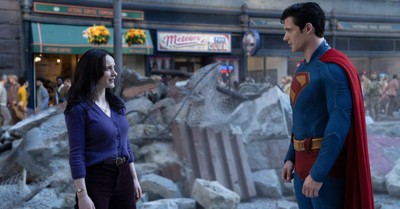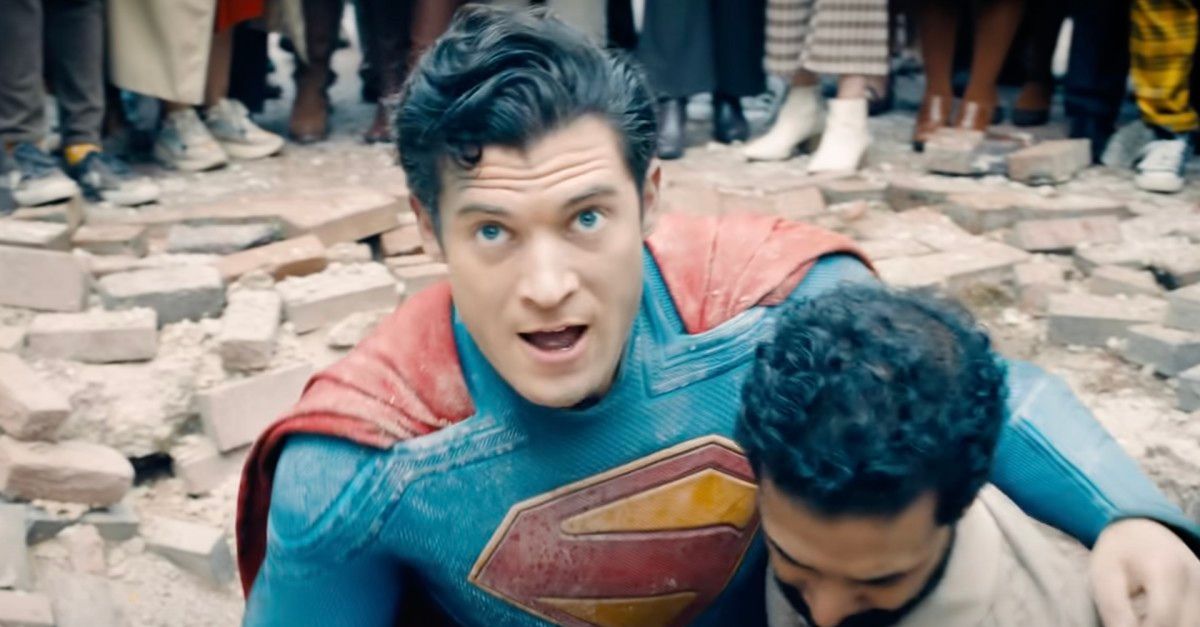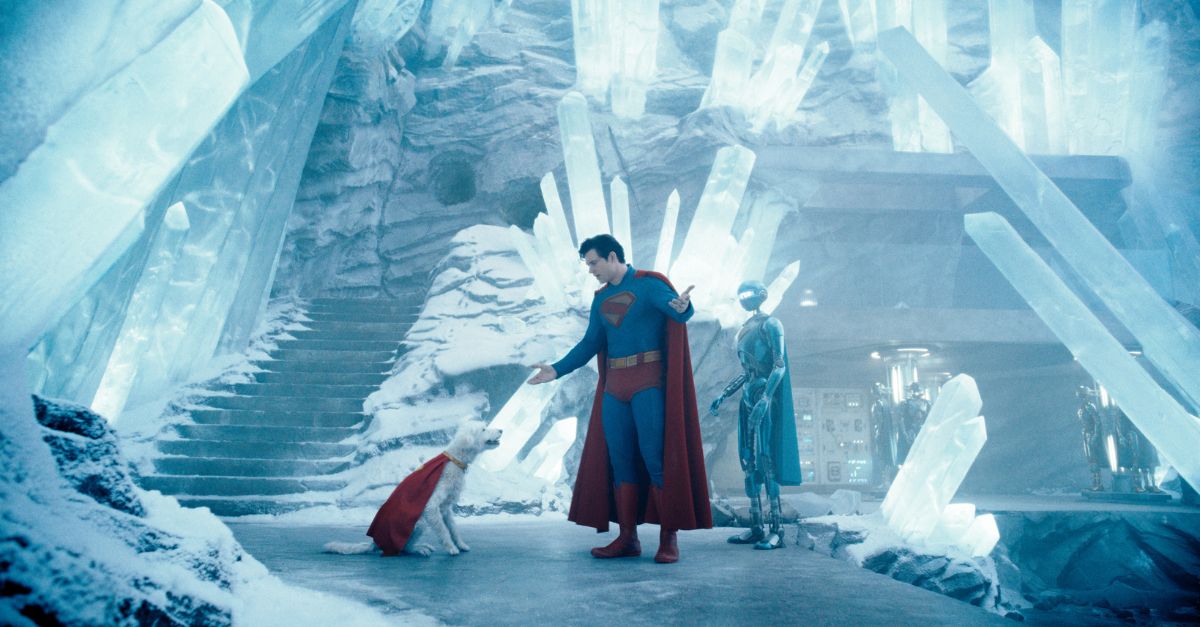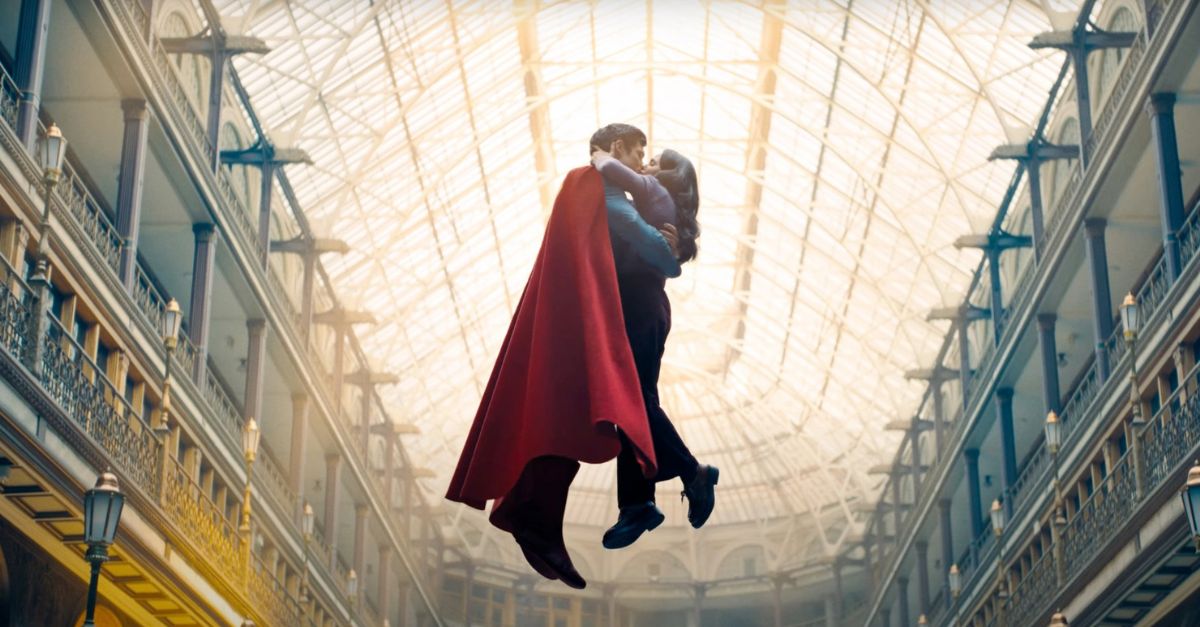3 Reasons Superman Is Just a Great Superhero Movie and Not a Political One
Movies


Audio By Carbonatix
12:05 PM on Wednesday, July 9, 2025
By Michael Foust, Movies

1. It's Solely about Superheroes
Gunn, the co-head of DC Studios, sparked a dustup with right-wing media when he told The Sunday Times that Superman is "the story of America" -- an "immigrant that came from other places and populated the country."
Perhaps that was Gunn's intended tone for the film, but the core plot is no different than the previous 10 films. This new Superman film contains no debates about immigration, no discussions about who does and doesn't belong within the borders of the United States. (The words "immigrant" and "immigration" -- if you're curious -- are not even mentioned.) Led by Luthor, law enforcement handcuffs Superman and sends him to parts unknown -- but it's due to fears about his motives, not his origins.
If anything, this Superman film promotes biblical values like kindness, love, and sacrificial purpose -- all wrapped in a Christ-like figure. Think about it: Superman is sent to Earth as a kind of savior, here to rescue humanity, uphold justice, and embody love. That's why we're so captivated by the superhero genre -- because these heroes reflect what we deeply long for at our core. It's a desire that only the true Jesus can ultimately fulfill.
Of course, that's just my interpretation of Superman -- just as Gunn has his. Atheists can still enjoy the film. And so can conservatives who likely will come to see it was much ado about nothing all along.
Photo Credit: ©DC

2. It's Still about Family
The film opens with Superman having lost the first battle of his life to a giant robotic-like creature dubbed the Hammer of Boravia, who is operated by Luthor and is retaliating for Superman's involvement in a war between the dictator-led Boravia and a neighboring country, Jarhanpur. (Superman halted Boravia's invasion, irritating its leader, a friend of Luthor.)
Bloodied and injured, Superman is rescued by his comical Super Dog, Krypto, and cared for by doctor-like robots in the ice-covered Fortress of Solitude who comfort him with video images of his biological parents from the planet Krypton -- images that remind Superman of the love that sent him to Earth as well as his mission and purpose.
Meanwhile, three other superheroes -- Green Lantern, Hawkgirl, and Mister Terrific of the so-called "Justice Gang" -- assist Superman in his mission against evil, although they often disagree on their tactics. While fighting a giant monster ravaging Metropolis, Superman expresses his desire to take the creature to a less-populated area so it can be studied -- while the Justice Gang simply wants to kill it. This compassionate version of Superman is seen elsewhere in the film, when he saves a woman from a devastating explosion …and rescues a squirrel, too, before placing it out of harm's way.
Once Luthor's message becomes public, though, Superman chooses to turn himself in to the police instead of running away -- believing it's the quickest way to get to the truth but also the only chance to find his dog Krypto, who earlier had been nabbed.
Luthor and his cronies place Superman in an otherworldly prison within a "pocket universe," a dark chamber within another dimension that Luthor built by replicating the Big Bang -- his words -- with a Luthor Corp "mega collider" that tore a "tiny hole between the two universal fabrics." Whatever that means.
Mister Terrific warns that Luthor's creation could open a black hole and eliminate all life on Earth, but Luthor, of course, doesn't care. Worse: Luthor placed a shard of kryptonite within Superman's cell, rendering our hero powerless.
If Superman is to be saved, someone -- anyone -- must join forces with him and turn on Luthor.
Meanwhile, Superman's adoptive parents provide the Man of Steel with the love he needed all along -- and remind us that even the strongest hero needs a loving home. He visits his adoptive mom and dad on their scenic and postcard-worthy Kansas farm, distressed about the message from his biological parents and unsure of his future.
"I'm not who I thought I was," he tells his adoptive father, who reminds his son that his alien family's past does not have to define his future.
"Your choices, your actions -- that's who makes you who you are," his dad says. Choking back tears, the father adds, "I couldn't be more proud of you."
In the film's final scenes, the Fortress of Solitude robots once again tend to Superman's medical needs and ask if he wishes to be comforted by footage of his parents. This time, though, they show images of his adoptive parents -- moments from his childhood on the Kansas farm, learning life's simple lessons, sharing quiet moments, and discovering what it means to be loved.
Jerry Siegel (1914-1996), the co-creator of Superman, lost his father during a robbery -- an event many believe inspired his vision of a bulletproof hero. It's clearly reflected in the 2025 version.
Photo Credit: ©DC

3. It's Still about Kindness and Love
Superman envisions a world that doesn't exist, but -- he says -- should exist. It's a world without war, a war without conflict. It's a world where justice prevails and evil is defeated. It is -- in other words -- a world that is reflected in biblical themes.
It's a trait that attracts Lois.
"I question everything and everyone," she tells him. "You trust everyone and think everyone you've ever met is, like, beautiful."
Superman isn't without its speed bumps for families. It contains tons of the expected punching, kicking, and explosions, two passionate kisses between Superman and Lois, and a fair amount of coarse language (see details below). It's never implied that they live together -- Lois clearly has her own place — but one character does mention at the end that the two have been "hooking up" for three months. (It's played as a joke, and no one knows for sure if it's true.)
The 2025 version of Superman is one of the best superhero films in years -- and a strong debut for DC Studios' new universe, Chapter One: Gods and Monsters. It delivers a fun, fresh take on the Man of Steel while staying true to the heart of the story, though longtime fans may be split on the reimagined angle involving his parents. The film strikes just the right balance of humor, thanks in large part to the smart addition of Krypto.
With a rich plot, engaging characters, and visuals that never feel overwhelming, it captures the spirit of classic '80s and '90s superhero films in all the right ways.
Superman is rated PG-13 for violence, action, and language. Language details: A-- (5), s--t (10), GD (1), h-- (3), d--n (2), b--ch (1), misuse of "God" (4), misuse of "Jesus Christ" (1), OMG (2), SOB (1).
Entertainment rating: 4 out of 5 stars.
Family-friendly rating: 2.5 out of 5 stars.
Discussion Questions for Families
- What traits make Superman a hero in this film?
- Which of those traits can we try to show in our own lives?
- The film includes themes of justice and mercy -- how does Superman balance doing what's right with showing compassion?
- What are the differences between how he and the Justice Gang approach evil?
- Why does Superman need a loving family even when he is a superhero -- and what can that teach us about today's world?
Related Resource: Living at the Speed of Love with Steven Curtis Chapman
Award-winning Christian artist Steven Curtis Chapman joins Crosswalk Talk to share the deeply personal story behind his song “At the Speed of Love.” Originally written for Mother’s Day, the song goes far beyond the holiday—offering a heartfelt tribute to his mom, Judy, while reminding us to slow down and live life with intentional love. Steven opens up about his mother’s legacy, her compassion, and how her quiet acts of service helped shape his understanding of what it means to truly see and care for people—whether it’s at a community kitchen, a flower shop, or simply making someone feel seen at a gas station checkout. You can find Crosswalk Talk on LifeAudio.com, or subscribe on Apple or Spotify so you never miss an interview that will be sure to encourage your faith.
Photo Credit: ©DC

























